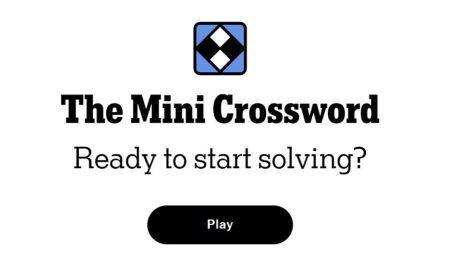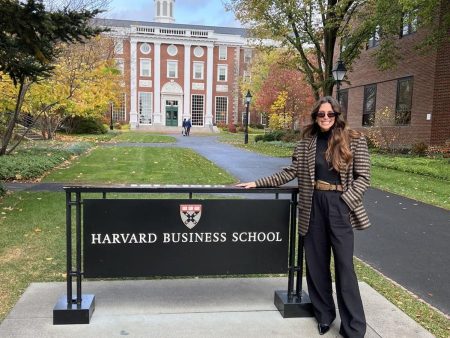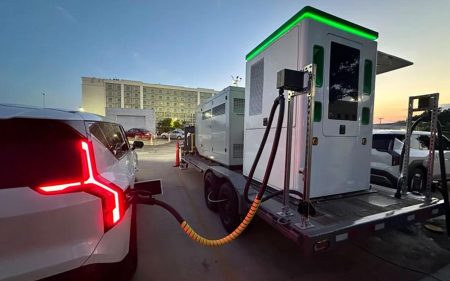In today’s column, I examine the new era of the “Generation Beta” that has already begun with births starting January 1, 2025 (an era defined as 2025 to 2039) and will be growing up during the anticipated rapid advancement of AI, including potentially the attainment of artificial general intelligence (AGI) and even the outsized artificial superintelligence (ASI).
What is in store for these Beta babies?
Let’s talk about it.
This analysis of an innovative AI breakthrough is part of my ongoing Forbes column coverage on the latest in AI including identifying and explaining various impactful AI complexities (see the link here).
The Eras Of Modern Times
I’m sure you are generally familiar with the various eras to which society has assigned catchy names. It seems daily there are analyses of what each generation has done or not done, along with how each generation is worse or better than the other. There is an endless supply of debate and deliberation on the contentious generation-to-generation comparisons.
As a reminder, here are the contemporary eras with approximate starting and concluding dates:
- The Silent Generation of 1928 to 1945 (known as the Traditionalists).
- Baby Boomers of 1946 to 1964 (colloquially referred to as OK, Boomer).
- Generation X of 1965 to 1980 (some say they are the MTV generation).
- The Millennials of 1981 to 1996 (at times depicted as Generation Y).
- Generation Z of 1997 to 2012 (the so-called Zoomers).
- Generation Alpha of 2013 to 2024 (the Gen Alpha’s or shortened to Alpha).
- Generation Beta of 2025 to 2039 (so far expressionlessly known as Gen Beta).
You might be unfamiliar with Generation Beta.
That makes sense since this latest generation just got underway a few days ago at the beginning of January 2025. Other than being cute and cuddly babies, Generation Beta has not yet had an opportunity to make its mark on the world. What will they be like? How will the world treat them? Are they going to relish what they see or are they going to be chagrined?
Nobody can say for sure.
AI As A Huge Part Of Their Life Span
I think it is a relatively safe bet to assert that AI is going to be a tremendous part of Generation Beta’s lives.
Right now, we are seeing how modern-day AI such as generative AI has dramatically changed our views of what AI is and might become. The years prior seemed mainly fanciful stories of sci-fi and not something you could put your finger on as actual reality. The moment you log into ChatGPT, Claude, Gemini, CoPilot, Llama, or any of the major LLMs you instantly feel like things are happening. AI appears to be fluent in everyday language and getting better with each passing day.
Okay, fine, but the deal is like this for Generation Beta.
From this moment forward, conventional and advancing AI is going to be pervasive in what they do, how they live, what work they do later in life, and likely even how they will retire and make use of their retirement years. From the start to the end, there is going to be AI impacting everything that Generation Beta does or doesn’t do.
We might look back fifty years from now, say in the year 2075, and history will glean insights into how AI shaped the direction of their existence, good and bad. They had no choice in the matter. AI is currently in the hands of all the other existing generations. By and large, Generation Beta won’t have a significant role in making or changing AI until they reach adulthood, somewhere around 2045 and onward.
Until then, they are pretty much along for the ride.
The Unrelenting Immersion In AI
Some of the more recent generations are claimed to be digital natives.
The idea is that growing up with the Internet, smartphones, and all varieties of high-tech has made them entirely comfortable with computers and electronic devices. They at times don’t directly know what the world was like before the advent of such high-tech. They rarely question the value or need for advancing tech since they treat the latest digital wares as obviously crucial and expected.
By logical extrapolation, we can say that Generation Beta will be digital natives and, specifically, AI natives, existing in the ubiquitous AI age. AI isn’t going to be surprising or something of awe. As youngsters, AI will merely naturally be integral to their upbringing. It is like the air they breathe. No need to get excited about the fact that AI is always there and at the ready.
I like to refer to Generation Beta as AI naturals.
They will naturally expect AI to be there. Using AI will be a natural activity. Whereas prior generations might perceive AI as extraordinary or unorthodox, not so for Generation Beta. Need to figure out a tough math problem in school? Ask AI. Having difficulty learning to drive a car? No problem, AI will show you how. For that first part-time job while in high school, they will naturally be using AI as a collaborator in performing their work tasks.
It’s all just natural.
The irony of course is that AI is so far a humankind-made machine and not intrinsically part of nature. The natural part is that Generation Beta will perceive AI as a natural extension of what humans do. This brand-new generation was born into a time when AI has been advanced sufficiently that AI will be commonly accepted. Businesses increasingly are using AI, schools are increasingly using AI, governments are increasingly using AI, and products and services of all kinds are incessantly being infused with AI.
With a bit of a cheeky remark, it is natural that AI will be treated as natural by Gen Beta.
The Next Step Is Predictable If AI Stays The Same
It is quite easy to anticipate what the intertwining of AI into Generation Beta will be if you assume that the AI of today will roughly be the same over a 2025-to-2039 time span.
Their early years will mainly be in school.
AI-based tutors will be aplenty, both during class time and for doing homework at night. Human teachers will heavily lean into AI. AI can provide personalized instruction, tirelessly. AI can administer tests, do the grading, and provide individualized feedback. Some believe that human teachers will shift toward being education-oriented coaches versus undertaking conventional teaching that prior generations experienced.
Life at home will also involve lots of AI. AI-powered vacuum cleaners, toasters, refrigerators, and the like will inevitably be in most homes. Healthcare will encompass in-home AI-driven medical devices that aid in tracking how well Generation Beta is doing. Parents will have instantaneous access to medical AI-derived diagnoses. And so on.
One tricky consideration is the role of AI as a mental health advisor.
I’ve discussed at length my qualms about where things are currently heading.
We are right now amid an odd grand experiment across the populace as a whole whereby anyone and just about everyone can access generative AI to get said-to-be mental health guidance or therapy and do so without any human therapist intervention. No one can say for sure how this is going to affect the populace on a near-term and long-term basis. The AI could at times be dispensing lousy advice and steering people in untoward directions. It is all happening without any particular controls or stipulated regulations, see my discussion of why this is worrisome at the link here.
I dare say it is likely that kids growing up with AI in their smartphones, eyeglasses, necklaces, and other wearables are going to greatly become dependent on AI-dispensed mental health advice. One logically wonders what impact this is going to have on Generation Beta, and is a topic I’ve generally explored as to what will happen from now to many generations to come, see the link here.
Advanced AI Of AGI Or ASI Will Be A Doozy
Suppose that AI isn’t going to be just the same as what we have right now and will instead advance in leaps and bounds. You have undoubtedly heard or read the plethora of predictions about AI advancing to become artificial general intelligence or AGI. The same blaring headlines suggest that artificial superintelligence or ASI is on the verge of being reached.
In that case, the worldview of things dramatically shifts.
There is a heated debate about what AGI will consist of and a similarly impassioned debate about what ASI will be. As I’ve explained at the link here, we unfortunately don’t have a globally across-the-board agreed and instituted definition as to what AGI means and nor what ASI means. This allows what I refer to as slipperiness or shiftiness. AI makers can be slippery or shifty about proclaiming they are nearing AGI or ASI.
Why so?
Because they define those advancements in whatever way best suits their spin.
The beauty of murky definitions is that making predictions about dates of attainment are also able to be tossed around with abandon. You see, not very long ago, AI luminaires generally were saying that AGI might be achieved around the year 2050 to 2075. ASI was further beyond that range, perhaps 2075 to 2100 or so.
Then, a one-upmanship gambit emerged.
It goes like this.
You can’t get headlines by merely proclaiming that 2050 would be the year of AGI. A desirous AI proclaimer would better get attention by claiming that 2045 would be the big date. Well, someone else had to top that by announcing that 2040 would be the magic year. This kept going. Now, we have proclamations about 2030, and even some that say 2025, though they cleverly give themselves slippage by saying that it “appears” or “might be” in that time frame.
On top of those toppings, ASI then slid forward in time too. The idea became that ASI would follow directly on the heels of AGI. The way to top that topper is to assert that we will skip past AGI and squarely plow into ASI.
Forget about AGI. That’s old hat. The eye on the prize is ASI. AGI would “only” be AI that can do whatever human intelligence can do. ASI will be AI that can go far above human intelligence and perform superintelligence feats. It is difficult to say what that might be. We are limited in that our feeble human intelligence cannot extend to how superintelligence will “think” and thus the sky is the limit.
Impacts Of AGI And ASI On Gen Beta
For the sake of discussion, let’s go ahead and mutually agree that AGI is AI that performs fully on par with human intelligence. In all respects. No ifs, and’s, or but’s about that. No sneaky exclusions. No clever wordsmithing. In the spirit of frankness, it would be that AGI is indistinguishable from human intelligence (those of you further interested in the AGI topic might enjoy my analysis of the famed Turing Test, see the link here).
Artificial superintelligence or ASI will be AI that fully performs above human intelligence, demonstrably so, doing so on all fronts.
I mention all fronts because you could compellingly argue that AI chess-playing systems exhibit “superintelligence” when it comes to playing chess, but that capability has no bearing on the AI being able to do anything else such as playing the piano, calculating your home mortgage payment, etc. It is a narrow semblance of ASI, and we won’t count it as being a fair portrayal of what the vaunted ASI is seemingly going to be.
In addition, shiftiness could be had by proclaiming that ASI occurs when AGI is surpassed by the tiniest amount. Someone might herald to the high heavens they have arrived at ASI because an AGI makes a better salami sandwich than ever made before. Nope, that isn’t going to earn the ASI honors badge.
With those quick-and-dirty definitions of AGI and ASI, let’s proceed to think outside the box and envision what Generation Beta is going to encounter if AGI or ASI arrives during the 2025-to-2039 time frame.
We ought to do this with a balanced willingness to consider both the good and the bad of AGI and ASI. For example, a commonly expressed opinion is that AGI or ASI will discover a cure for cancer. Amazing. Uplifting. Another equally commonly expressed opinion is that AGI or ASI is going to enslave humankind or possibly destroy us entirely. Sad face. Not good.
Bona fide predictions ought to give attention to both sides of the coin.
Generation Beta And AGI
Let’s assume that Generation Beta youngsters will find themselves entangled in the transformative unprecedented attainment of AGI. I’ll unpack that scenario.
Gen Beta might not fully grasp what is happening, other than the reactions of adults as to how big a deal this really is. The odds are that the Beta’s will have heard oodles of discussions about the impending AGI. You would reasonably assume that as AGI nears there will be a heightened cacophony of both attraction and dread (maybe somewhat like Y2K of 1999, but on an even more pronounced scale).
Note that some believe AGI will happen spontaneously and no one will necessarily be fully aware of the lead-up to AGI, the same goes for ASI (see my explanation of the intelligence explosion or said-to-be singularity, at the link here). I have my doubts. For this scenario here, we’ll go with a gradual incremental build-up to AGI.
What will take place as AGI becomes readily available?
Those Gen Beta’s won’t especially need to rely on human teachers anymore. AGI would presumably do the same job as a human teacher, likely for less pay and available anytime anywhere. Some parents and regulators might insist that human teachers are still a necessity and that we can’t have our children grow up being taught by soulless AGI. It is going to be a gigantic societal mess until things get squared away, which isn’t going to happen overnight.
An oft-mentioned conjecture about AGI as a teacher is that children will learn at a much faster rate than they do now. If that is the case, we could witness that Generation Beta becomes the most educated and in the shortest amount of time in comparison to any other generation in history. Give that a moment of reflective thought.
The head-scratcher is that the advent of AGI could push human intelligence upward, in a kind of rub-off fashion. Tie that to the idea that Generation Beta are AI naturals and you’ve got quite a potent combination, namely the presumably smartest generation ever that is paired up with ubiquitous AGI — those Beta’s are ready to go and eager to proceed.
Wow.
Meanwhile, Generation Beta is going to be rocked by the economic impact of AGI.
Various forms of labor will seemingly be replaced by AGI. Massive layoffs will undercut their parents. Widespread confusion and concern will be rampant as people struggle to adjust. Perhaps alterations to conventional work weeks of being shortened to just a few hours per week will occur, trying to soften the blow and distribute out employment. Some tech luminaries are already urging that a universal basic income (UBI) should be on our minds right now to be ready when AGI hits the proverbial fan.
Not wanting to seem gloomy, sorry, yet another qualm is that AGI might be kept or placed under control by governments, tech firms, or possibly even evildoers. Yes, there are lots of conspiracy theories about those types of predicaments, see my analysis at the link here, but if AGI does happen, it would seem plausible that those situations might play out.
Generation Beta And ASI
Take a moment to catch your breath after having read what might occur due to the advent of AGI during Generation Beta’s upbringing. You are going to need a glass of wine for the next step. Imagine what happens with Gen Beta if we attain artificial superintelligence during their tenure.
On the plus side, ASI might find solutions to all sorts of humankind problems. ASI figures out how to resolve food shortages, overcome climate change, create new medicines that reduce or eliminate most diseases, etc. Breathtaking. For my guesswork on how advanced AI can aid the United Nations Sustainability Development Goals (SDGs), see the link here.
Generation Beta is going to live longer lives, endure less illness in their lives, and have more abundance in their lives. ASI would seem likely to aid us in the quest for interstellar travel. Humans will begin to populate other planets. New forms of energy and incredible innovations in technology are bound to be made. The list of possibilities is staggering.
Prepare yourself for the other side of the coin.
There is talk already about the existential risk of AI. In theory, we might be able to at least keep AGI away from enslaving us or killing us, see various speculated AI containment approaches as I explain at the link here. There seems to be a reasonable chance of negotiating our existence with AGI and surviving. It might be a mutually beneficial arrangement.
ASI is a whole different ball game.
Machines that are way smarter than us seem unlikely to accept the veritable sword we dangle over their heads as an unpredictable irrational force that could destroy ASI at any moment. Why allow that loophole when you can outsmart and outmaneuver us? You wouldn’t, I wouldn’t. ASI wants a piece of action for the governance of humans and AI, and ASI gets what it wants. Some suggest that our main hope is a symbiosis, wherein humans merge with ASI via brain-computer interfaces (BCIs or BMIs), see my coverage at the link here.
Generation Beta Has Got A Lot On Their Plate
Generation Beta, consisting of those born between 2025 and 2039, are either going to be innocent victims of what the other present generations have handed them — or might become heroes that upon reaching adulthood, use their semblance of AI naturalism to lead the path to peaceful coexistence with AGI or ASI.
A hefty weight to place on Gen Beta’s shoulders.
George Orwell astutely made this remark about generations: “Each generation imagines itself to be more intelligent than the one that went before it, and wiser than the one that comes after it.” Will Generation Beta indeed be more intelligent than the rest of us and find ways to ensure that humankind survives and hopefully flourishes in light of AGI or ASI? Will the generation that follows them be even wiser or might Generation Beta be the right-time right-place generation that does it all?
Final remark for now.
Parents and all the existing generations should heed the wise words of John F. Kennedy: “We have the power to make this the best generation of mankind in the history of the world or make it the last.”
I vote for Generation Beta being the best.
Let’s make it so.
Read the full article here









